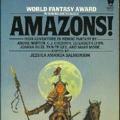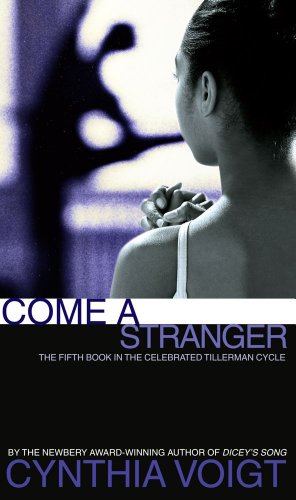radio-appears reviewed Come a Stranger by Cynthia Voigt (Tillerman Cycle, #5)
Review of 'Come a Stranger (The Tillerman Series #5)' on 'Goodreads'
5 stars
Cynthia Voigt is one of my favorite authors. Her coming-of-age stories affected me very much as a teenager (especially A Solitary Blue, since I related to Jeff so much). All her characters feel like fully realized people, and incredibly alive. Many of the people who've read her will say that Dicey, Jeff and Mina start to feel like old friends to them and I've had the same experience.
Come A Stranger is an interesting book in the Tillerman Cycle, since it deals so directly with race and racism, while the current consensus is that Black issues should really only be written about by Black authors. From my perspective, Voigt seems like one of the very few writers with the self-awareness and emotional intelligence to be able to write about the identity struggles of a young, Black girl. (I'm really, really interested in reading the opinion of a Black person on this book, though, to see if she got it as right as I think she did. Or, if not, where she failed. )
When it comes to the topic of race, Voigt really seems to have gotten a lot of it right. I'm white, though, and can't say for certain. However her narrative avoids being a simple "don't judge people by the color of their skin" affair. It manages to touch on micro-aggressions, for instance, before that term even existed (as far as I know). Come A Stranger is also about the experience of realizing that -in the eyes of the rest of the world- what is considered "high brow" culture is also, you know, white. And prone to excluding everyone who isn't white. (And it takes the opportunity to bash Narnia, which is something I'm always up for).
An example is when Mina is casted to dance the role of the villain in a ballet performance. At the time, she clearly thinks nothing of it, simply enjoying the opportunity to dance at all, but later on she questions the role her race played in being cast as the evil, "swarthy", enemy soldier.
Like in A Solitary Blue, the start of this book revolves around to visits to a "magical place" (a ballet summer camp in this case). During her first visit she sees it through the eyes of a child - as an idyllic place - but during her second visit, the covertly racist attitudes of her teachers and peers become more obvious to her, and trigger a search for her own identity as a young Black woman.
While as a white person, I've never had to deal with racism, her experience of coming to a place a second time and seeing it in a new, dissapointing, light, is very familiar to me, and I could relate to her hurt and loneliness in that instance.

